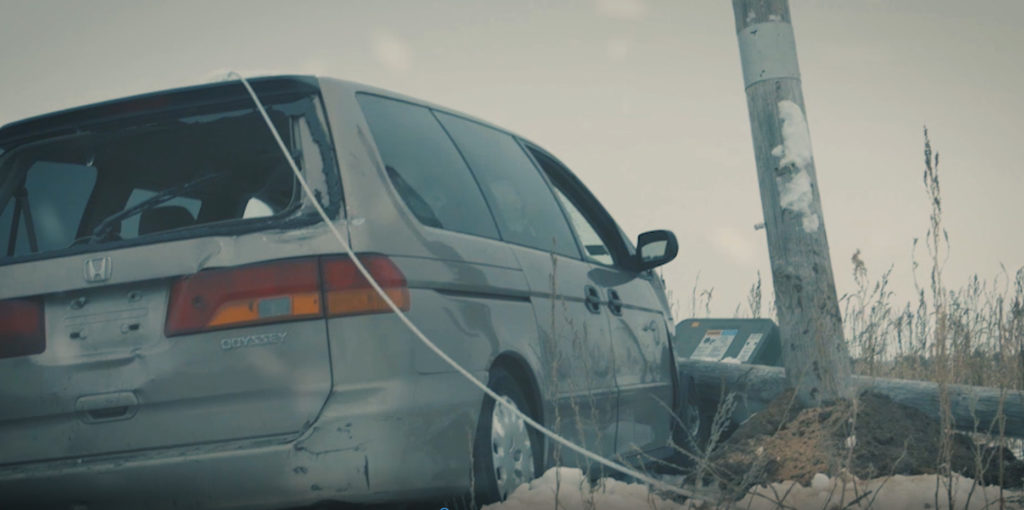
A close call by a young driver has inspired a group of Wisconsin electric cooperatives to launch an educational campaign on the dangers of car accidents involving utility poles and power lines.
“License to Live” is a six-minute video and curriculum produced by a group of Wisconsin electric cooperatives with support from the Wisconsin Electric Cooperative Association, Safe Electricity and the Federated Rural Electric Insurance Exchange (Federated). The campaign’s organizers contend that drivers are unaware of the dangers of downed power lines and that education needs to start early.
“The end goal is to have this be a requirement as part of the Wisconsin driver education training program,” said Ben Bella, the safety and compliance coordinator at four Wisconsin co-ops and the point person behind the campaign. “We think if we can get 15 minutes with every single new driver, we’re going to save lives.”
The idea for the campaign is based on an incident witnessed several years ago by Carol Blaken, member relations manager at Jackson Electric Cooperative in Black River Falls. Blaken and her husband, Jeff, were on a Wisconsin highway when they saw the accident unfold in their rearview mirror. The car swerved into a ditch, landed on its hood and snapped a power pole.
They saw the teenage driver struggling to leave his overturned car.
“My husband said if the driver would have reached up with his arms, he would have touched the sagging power lines,” recalled Blaken, who said she stopped the young driver from returning to the car to get his cellphone.
Several days later, still shaken by the incident, she approached Bella about what she’d seen and told him that something needed to be done.
After discussions with co-ops and the Wisconsin Driver and Traffic Safety Education Association, Bella formed a committee to come up with an outreach plan.
“We, too, often hear of and respond to automobile accidents that involve a utility pole or transformer box,” said Monica Obrycki, chief administrative officer at Eau Claire Energy Cooperative in Fall Creek and a committee member. “Ideally, these incidents would not happen at all, but the reality is that they do.”
The committee got support from Safe Electricity on video and curriculum content and financing from Federated. The committee hired a local video producer to make the six-minute film, which is available on Safe Electricity’s website.
“The video is aimed at making sure people know exactly what to do when their car comes into contact with a utility pole or wire,” said Bella. The film begins with an EMT recalling an incident in which a driver got badly injured, followed by a dramatization of two teenagers involved in an accident.
Several years ago, Safe Electricity made a similar video on the topic of downed poles and wires and car crashes. But it’s a topic that warrants a second look, said Erin Hollinshead, the group’s executive director.
“We knew [the video] would make an extremely valuable educational piece,” she said. “Presenting electrical safety information in new and innovative ways is always something we encourage.”
Federated’s Corey Parr said he’s heard of several instances in which young drivers have intervened and prevented an electrical accident because of co-op outreach at schools. Federated partnered with the group of safety professionals to support the production of the video.
“The campaign was a great opportunity with a priceless return on investment,” said Parr, the organization’s vice president of safety and loss prevention.
The committee wants the topic incorporated into the state driver education curriculum, an idea that is being discussed with the Wisconsin Department of Transportation. They also are considering the possibility of adding a question on power line safety to the written driver’s test.
“Right now, instructors can choose to present it, which is great, but it would be better if it was a requirement—then you’d take the choice out of the equation and all drivers would get this information,” said Bella.
Victoria A. Rocha is a staff writer at NRECA.